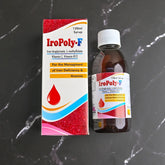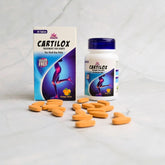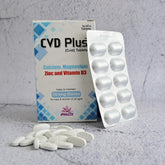Introduction:
Bones are the framework that supports our body, providing structure, protection, and the ability to move. Ensuring the health of our bones is crucial for overall well-being, and it all starts with a balanced diet rich in essential nutrients. In this blog post, we'll explore the key nutrients your body needs to build and maintain healthy and strong bones.
CALCIUM: The Building Block of Bones
Calcium is perhaps the most well-known nutrient associated with bone health. It plays a vital role in bone formation and density. When the body doesn't get enough calcium from the diet, it takes it from the bones, leading to weakened skeletal structures. Good dietary sources of calcium include dairy products, leafy green vegetables, and fortified foods.
VITAMIN D: Facilitating Calcium Absorption
Vitamin D is crucial for the absorption of calcium in the intestines. Without sufficient vitamin D, the body cannot effectively utilize the calcium consumed. Sunlight is a natural source of vitamin D, and it can also be obtained from fatty fish, egg yolks, and fortified foods. Ensuring an adequate intake of vitamin D is especially important for those who may have limited exposure to sunlight.
PHOSPHOROUS: Calcium's Partner in Crime
Phosphorus works in tandem with calcium to build and maintain strong bones and teeth. Dairy products, meat, fish, and nuts are excellent sources of phosphorus. A balanced ratio of calcium to phosphorus in the diet is essential for optimal bone health.
Vitamin K: Enhancing Bone Density
Vitamin K is involved in bone mineralization and helps improve bone density. Leafy green vegetables, broccoli, and Brussels sprouts are rich sources of vitamin K. Ensuring an adequate intake of this vitamin is vital for preventing bone fractures and maintaining bone strength.
MAGNESIUM: Strengthening Bone Structure
Magnesium is another mineral that contributes to bone health by helping to convert vitamin D into its active form and aiding in calcium absorption. Whole grains, nuts, seeds, and leafy green vegetables are excellent sources of magnesium.
PROTEIN: Building the Matrix of Bones
Protein is a key component of the bone matrix, providing the structure upon which minerals like calcium and phosphorus are deposited. Including sources of lean protein such as poultry, fish, beans, and tofu in your diet supports the maintenance and repair of bone tissue.
ZINC: Supporting Bone Formation and Repair
Zinc is involved in bone formation and repair processes. It is found in meat, dairy products, nuts, and whole grains. Ensuring an adequate intake of zinc contributes to overall bone health.
VITAMIN C: Collagen Formation for Bone Strength
Vitamin C plays a crucial role in collagen synthesis, a protein that provides structure to bones. Citrus fruits, strawberries, and bell peppers are rich sources of vitamin C. Including these in your diet can aid in maintaining strong and resilient bones.
What’s the best diet for bone health?
A well-balanced diet, incorporating leafy greens and fish oil, can supply essential nutrients to support strong bones and joints. Additionally, don't forget the significance of including red meat and carbohydrates in your dietary choices.
Conclusion:
Building and maintaining strong bones requires a holistic approach that includes a well-balanced diet rich in essential nutrients. Calcium, vitamin D, phosphorus, magnesium, protein, zinc, vitamin K, and vitamin C all play unique roles in supporting bone health. By incorporating a variety of nutrient-rich foods into your diet, you can provide your body with the tools it needs to build and sustain a strong skeletal foundation for a healthier, more active life.













